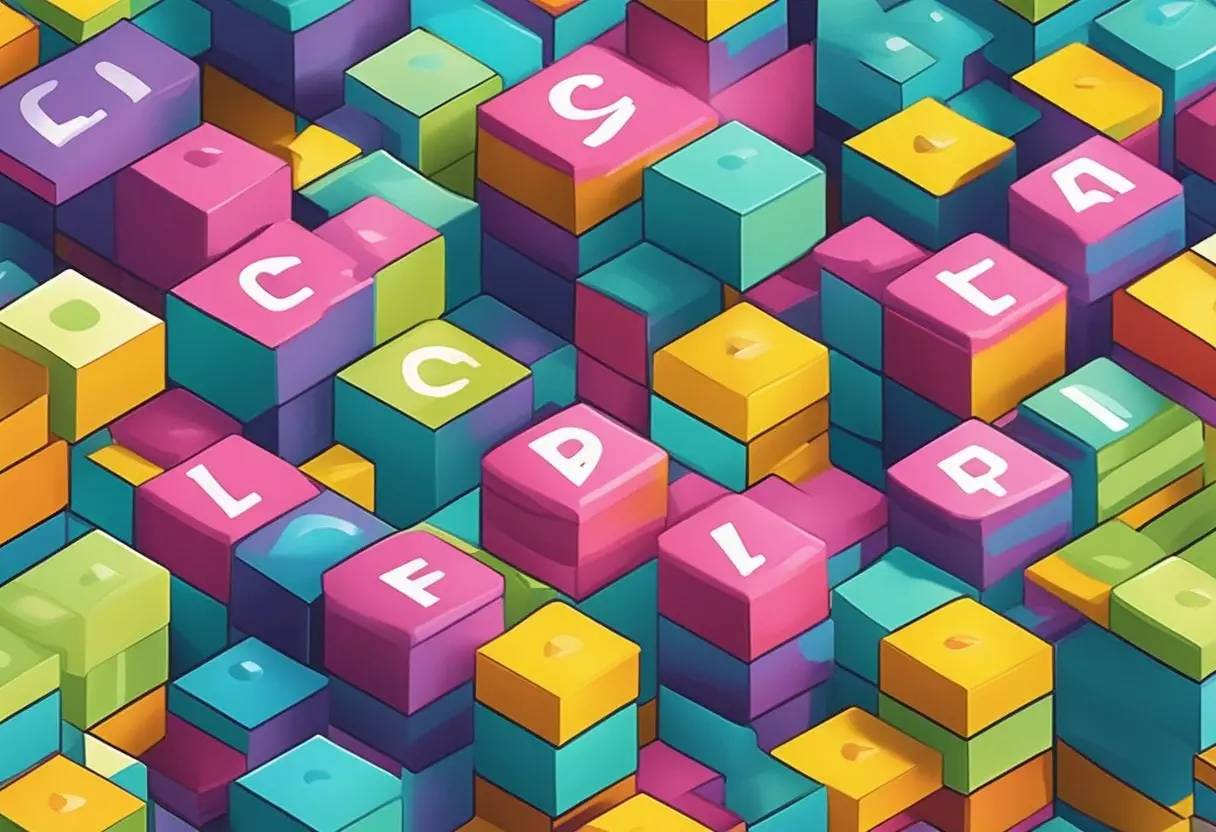Baby Name Gabriel: Meanings and Popularity Trends
Choosing a baby name is a significant decision, and if you’re considering ‘Gabriel,’ you’re looking at a name with both ancient roots and modern appeal. Known best for its Biblical association, Gabriel stands out as a timeless choice that has found its rhythm across various cultures and languages. This name has garnered favor for its balance of classic resonance and contemporary popularity, soaring in the charts especially since the turn of the 21st century.

Gabriel’s versatility crosses language barriers, morphing into appealing variants like Cebrail in Turkish and Gabriele in Italian, showcasing its global reach. The name’s popularity isn’t just by chance; it carries a meaning of strength and divinity, often translated as “God is my strength,” which resonates with many parents seeking a name with spiritual significance.
Whether you’re drawn to its angelic connections or simply love the sound, Gabriel is a name that promises to grow alongside your child. Its staying power in name rankings and the positive attributes associated with it make it a compelling choice for your baby boy.
Table of Contents
The Historical Significance of Gabriel
The name Gabriel holds a deep historical significance with its Biblical roots and a wide-reaching Cultural Impact Across Religions. Your exploration of this name will take you through ancient scriptures and across continents, revealing its longstanding spiritual and cultural importance.
Biblical Roots
In the Hebrew Bible, Gabriel is recognized as one of the principal archangels and is often seen as a messenger of God. You’ll come across Gabriel in the Book of Daniel, where he explains visions to Daniel and heralds significant prophecies. Moving to the New Testament, Gabriel’s presence is pivotal, as he announces to Mary the birth of Jesus, linking the name forever to the Christian narrative. This positioning of Gabriel as a communicator between the divine and the human world underscores his role within the Old Testament and Christian faith.
Cultural Impact Across Religions
The role of Gabriel extends beyond Christianity into Islam, where Gabriel (known as Jibril in Muslim tradition) holds prominence in the Quran. He’s known to have delivered the Quranic revelations to the Prophet Muhammad and thus holds a key position in the Muslim faith as well. The name Gabriel, across various cultures and religious beliefs, suggests strength, purity, and spirituality, which is why it echoes through centuries as a name given to boys around the world. This cross-religious reverence highlights Gabriel’s significance as not just an angel or archangel but as a figure of unity and peace across differing faiths.
The Etymology and Meaning of Gabriel
Diving into the name Gabriel, you’ll discover its rich linguistic roots and the nuances that make it a strong and timeless choice.
Name Origin and Interpretation
Hebrew Origin: Gabriel is steeped in Hebrew tradition, where it is derived from גַבְרִיאֵל (Gavri’el). The name is a beautiful amalgamation that signifies “God is my strength“. This combination comes from the words “gever” meaning “strong man” or “hero”, and “el” representing “God”. Through time, Gabriel has been associated with the strength and protection of a divine power, reflecting the attributes of being a “man of God”.
Language Variations
Variations Across Cultures: The name Gabriel’s adaptability is evident in its many forms across different languages and cultures. For instance:
- Spanish: Gabriela, a feminine version
- Italian: Gabriele is common among boys, while Gabriella graces girls
- French: You might meet a Gabriel or a Gabrielle
- German and Dutch: The name is spelled Gabriël or Gabriel for boys
- Portuguese: Gavriel
- European Influence: The name has influenced European names in various forms.
Each variation holds onto the core meaning while presenting a unique flair, ideal for those cherishing European roots or valuing linguistic diversity. Whether you prefer the traditional Gabriel or a local variant like Gabriele, Gavril, or Gabriela, the essence of strength and divine connection remains intact.
The name Gabriel transcends cultural boundaries, making it a powerful and internationally recognized name for your child.
Naming Trends and Popularity

The name Gabriel has seen a remarkable journey in terms of popularity, making its way from relative obscurity in the early 20th century to a top choice in recent years. It’s your connection to a name that bridges traditional roots with modern appeal, embraced by families around the world.
Modern Usage and Stats
Gabriel enjoyed a significant rise in popularity in the 21st century. Garnering attention on the Social Security Administration’s list, Gabriel has been a consistently popular baby name. In the 2000s, it soared to the top echelons, breaking into the top 50 boy names. Its global appeal is reflected in the many variations of the name across different languages and cultures.
- US Popularity: Ranked at 54
- Origin: Hebrew
- Meaning: “Man of God”
This angelic name isn’t just for angels; it’s one that your son can carry proudly, drawing from a well of historical significance and contemporary cool.
Famous Gabrieles
When you think of the name Gabriel in the world of fame, Gabriel Iglesias, also affectionately known as “Fluffy,” might come to mind. He’s a gifted comedian and actor whose larger-than-life personality brings joy to many. Beyond comedy, numerous writers, actors, and public figures share this name, each contributing to its modern-day charm and familiarity.
- Gabriel Iglesias: Renowned comedian and actor.
- Other Fields: A common name among influential individuals.
By choosing the name Gabriel, you’re in good company, aligning your little one with a host of accomplished Gabrieles who have left their mark on the world.
The Cultural Significance of Gabriel
Gabriel carries not only a rich history but also significant cultural weight. It is tightly woven into various aspects of society, from holy texts where Gabriel appears as a pivotal figure, to modern times where it has become a popular name choice that embodies strength and guidance.
Artistic and Literary References
You will find Gabriel’s presence throughout history in many artistic and literary works. Notably, Gabriel has been depicted as an angel and messenger in religious texts—he is the one who informed Virgin Mary of her impending conception of Jesus Christ and spoke to Muhammad. This angelic association has inspired countless works of art, from Renaissance paintings to contemporary films. In literature, references to Gabriel often imbue characters with qualities of messengers or guides for humanity.
For instance, in Bram Stoker’s “Dracula,” one of the principal characters is named Abraham Van Helsing. His first name is often shortened to Gabe, a nickname for Gabriel, symbolizing his role as an opposition to evil, much like the archangel. Gabriel also frequently appears as a symbolic figure in poetry and novels, where authors use the name to signify someone with heroic qualities or a strong moral compass.
Naming in Different Cultures
Gabriel’s international appeal is evident as it has taken various forms across cultures:
- In Hebrew, Gabriel (גַבְרִיאֵל) means “God is my strong man,” emphasizing qualities of strength and protection.
- The Italian version, Gabriele, and the Spanish Gabriela or Gabi, are closely tied to their roots, keeping the name’s original significance and charm.
- Nicknames like Gabe, Gabby, Gabi, and Gabo offer a friendly, casual take on the formal name, showing how it can easily adapt to everyday use while maintaining its innate significance.
Across cultures, Gabriel has always been associated with leadership and intelligence. The name is neat and adaptable, fitting perfectly into different languages and retaining its essential characteristics of spiritual and heroic symbolism.
Practical Considerations for Naming

When choosing the name Gabriel for your baby, considering practical aspects such as its gender neutrality and how well it pairs with middle names can help ensure that the name fits beautifully.
Gender and Variations
Gabriel is a traditionally masculine name with strong historical roots. It’s comprised of two Hebrew words: “gever,” meaning “strong man” or “hero,” and “el,” meaning “God,” signifying “God is my strength.” Despite its masculinity, variants like Gabrielle offer a feminine twist with equal grace and charm. These variations allow for gender flexibility while also providing an option that’s traditionally feminine. Keep in mind that the pronunciation remains consistent across genders, with a soft ‘G’ sound leading into the ‘bree’ syllable.
Middle Names and Syllables
Choosing the right middle name for Gabriel can balance the rhythm and flow of your baby’s full name. Typically, Gabriel is a three-syllable name that pairs well with either shorter, one or two syllable middle names for a pleasantly cadenced name structure. Here’s a quick guide:
-
For a one-syllable middle name, consider:
- Grace (unisex, lends a soft touch)
- James (a classic with strong appeal)
- Rose (a sweet, floral addition for Gabrielle)
-
Opting for a two-syllable middle name might look like:
- Ethan (cute and modern)
- Sophie (charming and vivacious)
Remember to vocalize the full name out loud to see how the syllables harmonize. Using middle names beginning with a vowel can often mesh well with the ending ‘l’ sound in Gabriel, ensuring a smooth transition between names.
